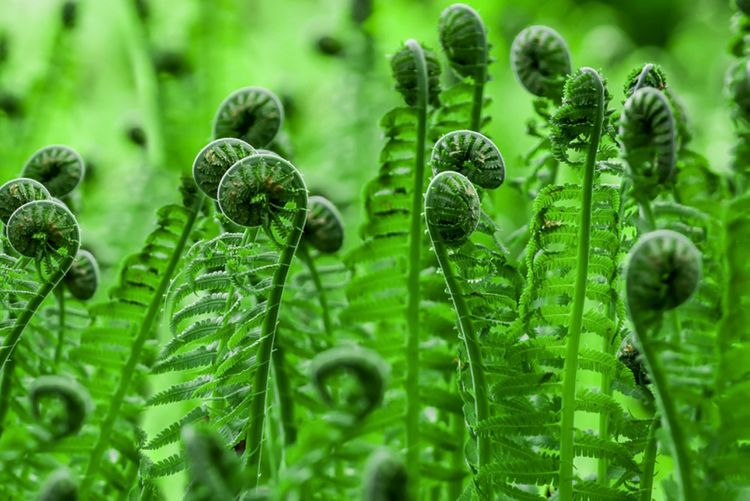Health Benefits of Fiddlehead Fern
What are the health benefits of fiddlehead fern?
Fiddlehead ferns are the young, tightly coiled fronds of certain ferns, and they are considered a delicacy in many cuisines. They offer several potential health benefits:
- Nutrient-Rich: Fiddlehead ferns are a good source of vitamins and minerals, including vitamin A, vitamin C, vitamin K, iron, and manganese. They also contain antioxidants, which help protect the body from oxidative stress and inflammation.
- Digestive Health: Fiddlehead ferns are high in dietary fiber, which is important for digestive health. Fiber can help promote regular bowel movements, prevent constipation, and support a healthy gut microbiome.
- Heart Health: The fiber and antioxidants in fiddlehead ferns may contribute to heart health. Fiber can help lower cholesterol levels, while antioxidants can reduce inflammation and oxidative stress, which are risk factors for heart disease.
- Bone Health: Fiddlehead ferns are a good source of vitamin K, which is important for bone health and blood clotting. Adequate vitamin K intake may help reduce the risk of osteoporosis and fractures.
- Weight Management: Fiddlehead ferns are low in calories and high in fiber, making them a filling and nutritious food choice. Including fiddlehead ferns in your diet may help you feel full and satisfied while managing your weight.
- Antioxidant Properties: Fiddlehead ferns contain antioxidants, such as vitamin C and beta-carotene, which help protect cells from damage caused by free radicals. Antioxidants may play a role in reducing the risk of chronic diseases, such as cancer (breast cancer, colorectal cancer, lung cancer, prostate cancer, ovarian cancer, and stomach cancer)and heart disease.
- Anti-Inflammatory Effects: Some studies suggest that certain compounds found in fiddlehead ferns may have anti-inflammatory effects. This could potentially benefit conditions characterized by inflammation, such as arthritis.
It’s important to note that while fiddlehead ferns offer several potential health benefits, they should be consumed in moderation and prepared properly. Some fern species may contain toxins that can cause food poisoning if not cooked thoroughly. If you have concerns or are unsure about consuming fiddlehead ferns, it’s best to consult with a healthcare professional or a knowledgeable food expert.
What are the health risks of fiddlehead fern?
While fiddlehead ferns offer several health benefits, there are also some potential risks associated with their consumption:
- Toxicity: Some species of ferns contain toxic compounds, such as alkaloids and glycosides, which can be harmful if ingested in large amounts or if not cooked properly. These toxins can cause symptoms such as nausea, vomiting, diarrhea, and abdominal pain. It’s important to properly identify and cook fiddlehead ferns to reduce the risk of toxicity.
- Allergic Reactions: Some individuals may be allergic to fiddlehead ferns or may develop an allergic reaction after consuming them. Symptoms of an allergic reaction may include itching, hives, swelling, and difficulty breathing. If you have a known allergy to ferns or other plants, it’s best to avoid fiddlehead ferns.
- Foodborne Illness: Like other vegetables, fiddlehead ferns can be contaminated with bacteria, such as E. coli or Salmonella, especially if they are not handled, stored, or cooked properly. To reduce the risk of foodborne illness, it’s important to wash fiddlehead ferns thoroughly and cook them to a safe temperature.
- Thiamine Deficiency: Some studies suggest that certain species of ferns may contain compounds that can interfere with thiamine (vitamin B1) absorption in the body. Thiamine deficiency can lead to neurological symptoms, such as confusion, muscle weakness, and nerve damage. However, more research is needed to understand the extent of this risk from consuming fiddlehead ferns.
To minimize the potential risks associated with fiddlehead fern consumption, it’s important to follow these guidelines:
- Only consume fiddlehead ferns that have been properly identified as safe for consumption.
- Wash fiddlehead ferns thoroughly before cooking to remove any dirt or contaminants.
- Cook fiddlehead ferns thoroughly to destroy any potential toxins or bacteria. Boiling or steaming is recommended.
- Avoid consuming large quantities of fiddlehead ferns, especially if you are pregnant, breastfeeding, or have underlying health conditions.
- If you experience any adverse reactions after consuming fiddlehead ferns, such as nausea, vomiting, or allergic symptoms, seek medical attention promptly.




